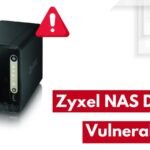Quantum computing, with its immense processing power and ability to solve complex problems at an unprecedented speed, holds the promise of revolutionizing various industries. However, as scientists make strides in developing quantum computers, the security implications for classical encryption algorithms have become increasingly apparent. The looming threat of quantum attacks on endpoints has prompted a pressing need for organizations to adopt quantum-resistant strategies and tactics to safeguard their sensitive information. In this article, we will explore the challenges posed by quantum computing to traditional endpoint security measures and delve into the emerging solutions that can help ensure data protection in a post-quantum world.
Quantum resistant Strategies and Tactics for Endpoint.
Quantum-resistant strategies and tactics for endpoints refer to measures taken to secure computing devices (endpoints) against potential threats posed by quantum computers. Quantum computers have the potential to break certain cryptographic algorithms that are widely used today, which could compromise the security of data transmitted and stored on endpoints
Some strategies and tactics to consider:
- Post-Quantum Cryptography (PQC)
- Key Size Increase
- Hybrid Cryptosystems
- Quantum Key Distribution (QKD)
- Regular Algorithm Updates
- Quantum-Safe Protocols
- Endpoint Security Measures
- Quantum-Resistant Hash Functions
- Risk Assessment and Transition Planning
- Collaboration and Research
Let us know the detailed explanation of each one.
- Post-Quantum Cryptography (PQC): Adopt cryptographic algorithms that are believed to be resistant to attacks by quantum computers. These algorithms are designed to withstand attacks from both classical and quantum computers. Examples include lattice-based, code-based, hash-based, and multivariate-quadratic-equations-based cryptography.
- Key Size Increase: If you’re unable to transition immediately to post-quantum cryptography, consider increasing the key size of your current cryptographic algorithms. This can provide a temporary solution by making it more difficult for quantum computers to break the encryption.
- Hybrid Cryptosystems: Implement hybrid encryption schemes that combine classical and quantum-resistant encryption. This involves using classical encryption methods for data confidentiality and quantum-resistant methods for key exchange.
- Quantum Key Distribution (QKD): Explore the use of quantum key distribution protocols, such as QKD, to securely exchange encryption keys. QKD relies on the principles of quantum mechanics to enable the secure exchange of keys, making it resistant to eavesdropping attempts by quantum computers.
- Regular Algorithm Updates: Stay informed about the latest developments in quantum-resistant cryptography. As research evolves, new algorithms might be introduced that offer better security guarantees. Regularly update your cryptographic methods to stay ahead of potential threats.
- Quantum-Safe Protocols: Evaluate and adopt quantum-resistant versions of common security protocols such as TLS (Transport Layer Security) and IPsec. These protocols are used to establish secure communication channels over the internet and networks.
- Endpoint Security Measures: Beyond cryptography, ensure that your endpoints have strong security measures in place, such as robust authentication methods (multi-factor authentication), up-to-date software, regular security patches, intrusion detection systems, and endpoint protection software.
- Quantum-Resistant Hash Functions: Choose hash functions that are designed to be resistant to quantum attacks. Quantum computers can potentially undermine the security of hash functions, so using quantum-resistant hash functions is important for maintaining data integrity.
- Risk Assessment and Transition Planning: Conduct a risk assessment to identify critical systems and data that could be vulnerable to quantum attacks. Develop a transition plan to migrate to quantum-resistant solutions over time.
- Collaboration and Research: Stay engaged with the broader cybersecurity community, as well as researchers in the quantum computing field. Collaborate with experts to gain insights into the latest threats and potential solutions.




